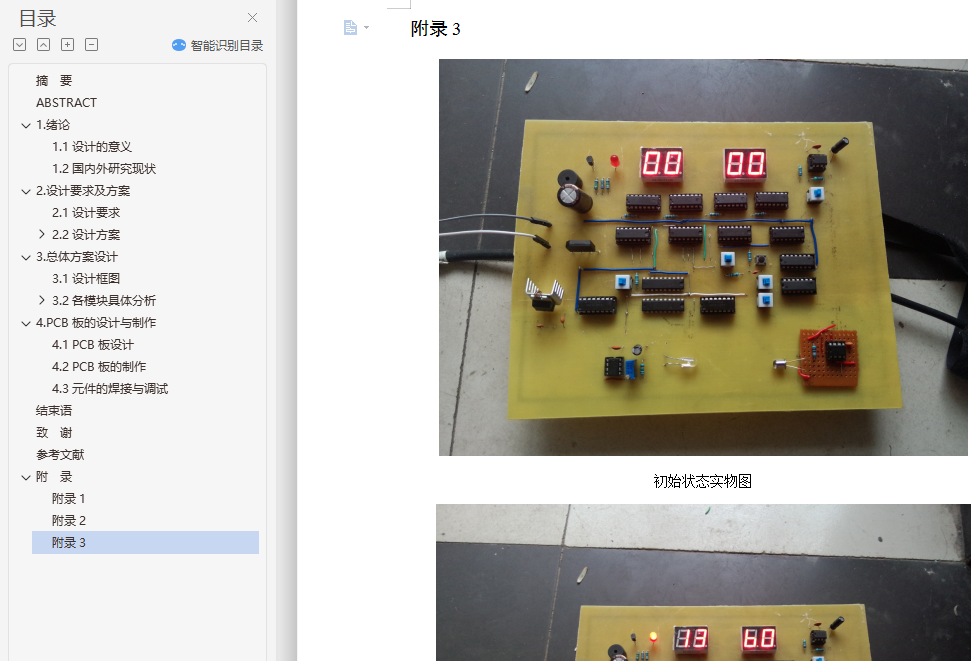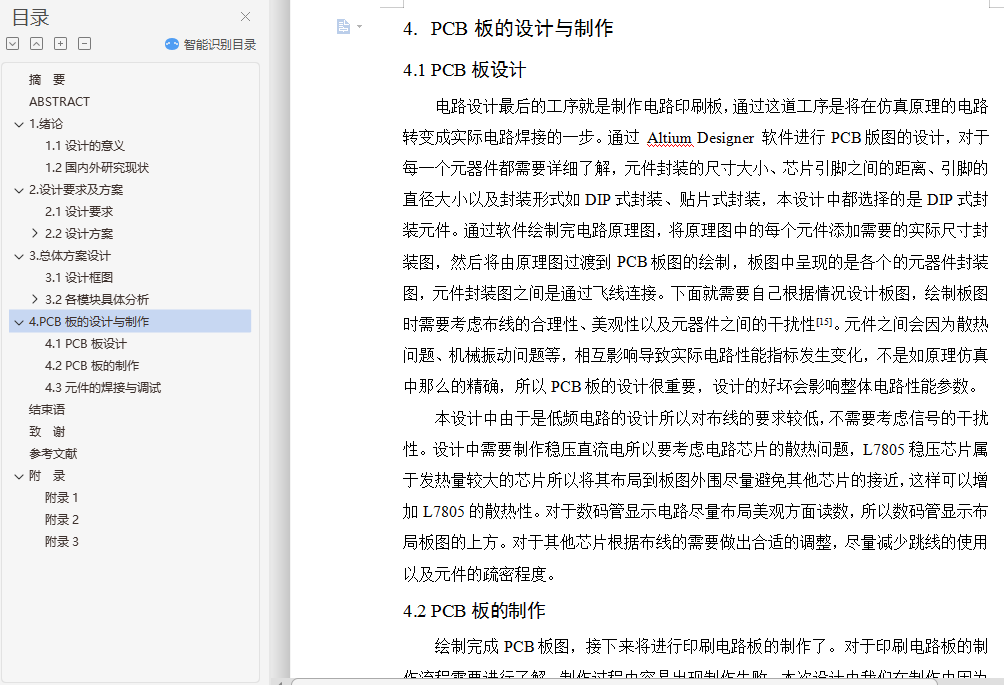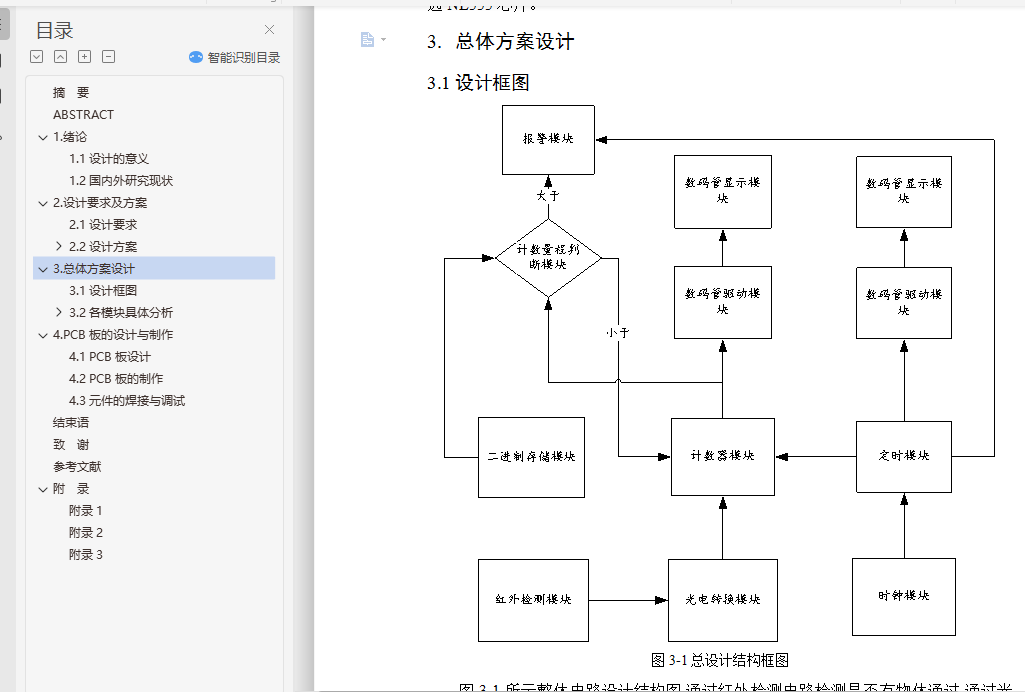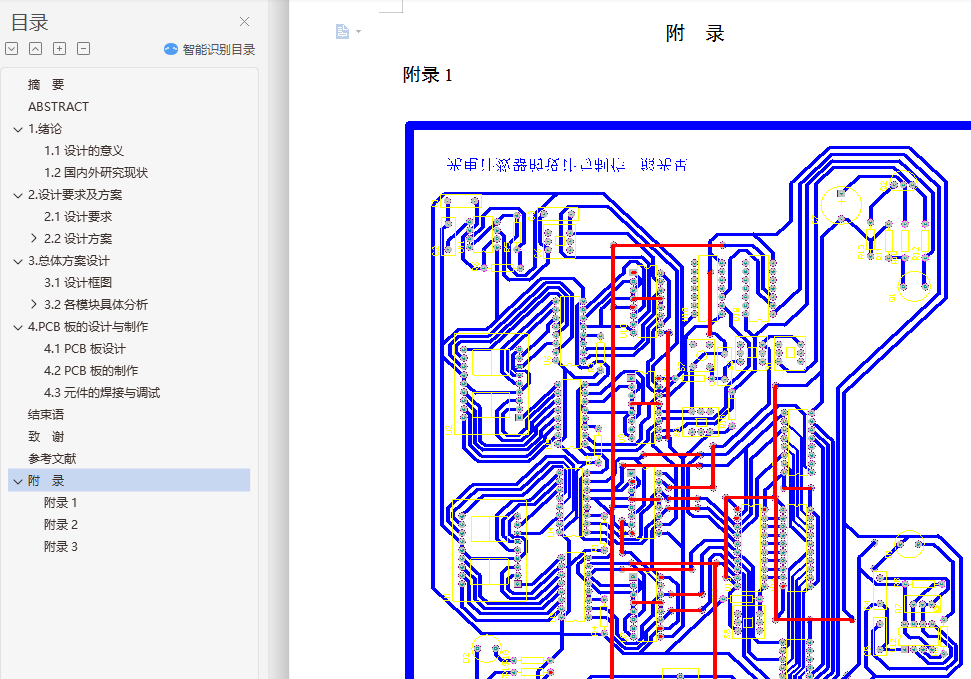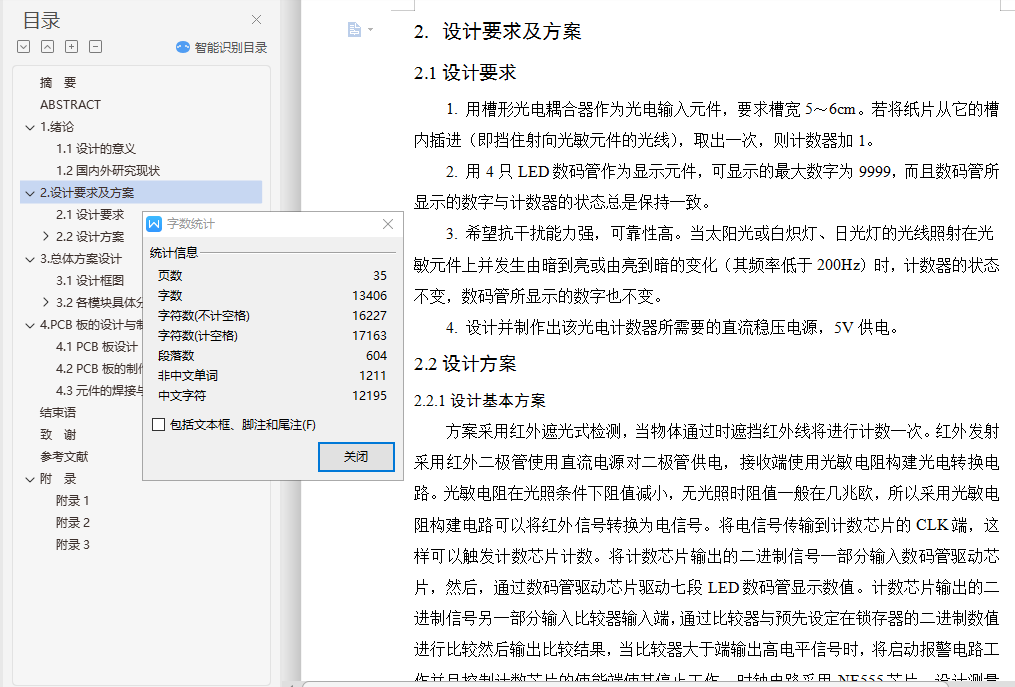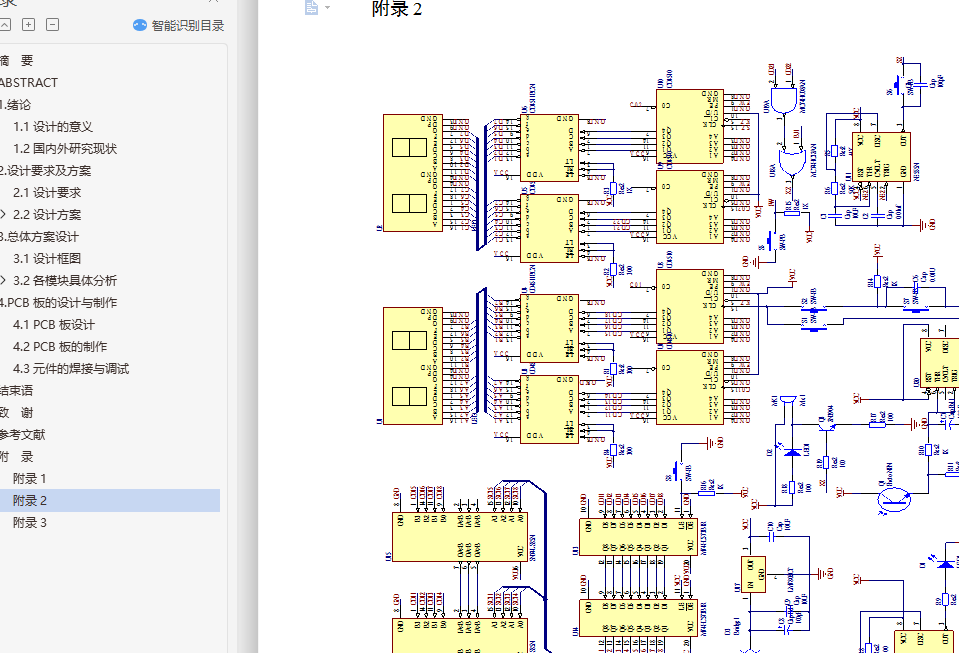摘 要
在啤酒、汽水、罐头和卷烟等生产线上常装有自动计数器以便计算产量或为生产过程控制自动化和计算机管理系统提供数据。计数器的种类较多,光电计数器是较常见的一种。它的输入装置有光源和光敏元件等,本设计采用槽形光电耦合器代替实用的光电输入装置。为了能够对光电计数器的原理详细分析,所以采用逻辑数字电路构建。对光电计数器的每一步的信号产生和输出都做出详细的分析。采用CD4510BE芯片构建计数器的计数功能电路,实现计数器的基本计数功能。采用74HC573芯片和74LS85芯片构建具有存储和比较功能的逻辑电路,从而实现对计数器的计数量程可以手动设定,这样可以提前设定计数量程,当计满量程时计数器停止计数并发出报警信号,该功能可以应用于工业化自动控制。计数器还增加有定时计数功能,该功能采用NE555芯片和CD4510BE组成的数字逻辑电路,实现具有时钟功能计数可以在规定时间范围内完成计数,该功能可以应用于工业可控制性生产,以及对一些低速转动装置可以测量其转动速率。
关键字 光电耦合器;CD4510BE计数电路;计数量程设定;定时计数
The Design of Industrial Counting Control System
ABSTRACT
Automatic counters are often installed on production lines such as beer, soda, cans and cigarettes to calculate output or provide data for production process control automation and computer management systems. There are many kinds of counters, and photoelectric counters are more common. Its input device includes light source and photosensitive element. In this design, slot photocoupler is used instead of practical photoelectric input device. In order to analyze the principle of photoelectric counter in detail, the logical digital circuit is used to construct the photoelectric counter. The signal generation and output of each step of the photoelectric counter are analyzed in detail. Using CD4510BE Chip to construct counter Counting function Circuit The basic counting function of the counter is realized. The logic circuit with storage and comparison function is constructed by using 74HC573 chip and 74LS85 chip, so that the counting range of counter can be set manually, so that the counting range can be set in advance. When the counting range is full, the counter stops counting and sends out alarm signal. This function can be applied to industrial automatic control. The counter also has the function of timing counting, which adopts the digital logic circuit composed of NE555 chip and CD4510BE, and realizes the counting with clock function, which can be completed in the specified time range. This function can be applied to work.
KEYWORDS photoelectric coupler;CD4510BE counting circuit;Count range setting;Timing count.
目 录
摘 要 I
ABSTRACT II
1. 绪论 1
1.1设计的意义 1
1.2国内外研究现状 1
2. 设计要求及方案 2
2.1设计要求 2
2.2设计方案 2
2.2.1设计基本方案 2
2.2.2设计改进方案 2
3. 总体方案设计 3
3.1设计框图 3
3.2各模块具体分析 4
3.2.1稳压直流电源模块 4
3.2.1.1稳压直流电源原理分析 4
3.2.1.2稳压直流电源仿真分析 5
3.2.2光电检测模块 6
3.2.2.1红外发光二极管驱动电路 6
3.2.2.2光电转换电路 7
3.2.2.3光电检测电路仿真分析 10
3.2.3计数模块 11
3.2.3.1计数器电路原理 11
3.2.3.2计数器电路仿真分析 12
3.2.4数码管驱动模块 12
3.2.4.1数码管驱动电路 12
3.2.4.2数码管驱动芯片原理 13
3.2.4.3数码管显示原理 14
3.2.5预置计数量程模块 14
3.2.5.1计数量程电路原理 14
3.2.5.2计数量程仿真分析 15
3.2.6时钟定时模块 16
3.2.6.1时钟电路设计 16
3.2.6.2定时计数电路 16
3.2.6.3时钟定时计数仿真分析 17
3.2.7报警指示模块 18
3.2.7.1报警电路 18
3.2.7.2报警电路仿真分析 19
3.2.8整体电路测试与调试分析 19
3.2.9元器件列表 21
4. PCB板的设计与制作 22
4.1 PCB板设计 22
4.2 PCB板的制作 22
4.3元件的焊接与调试 23
结束语 24
致 谢 25
参考文献 26
附 录 27
附录1 27
附录2 28
附录3 29
